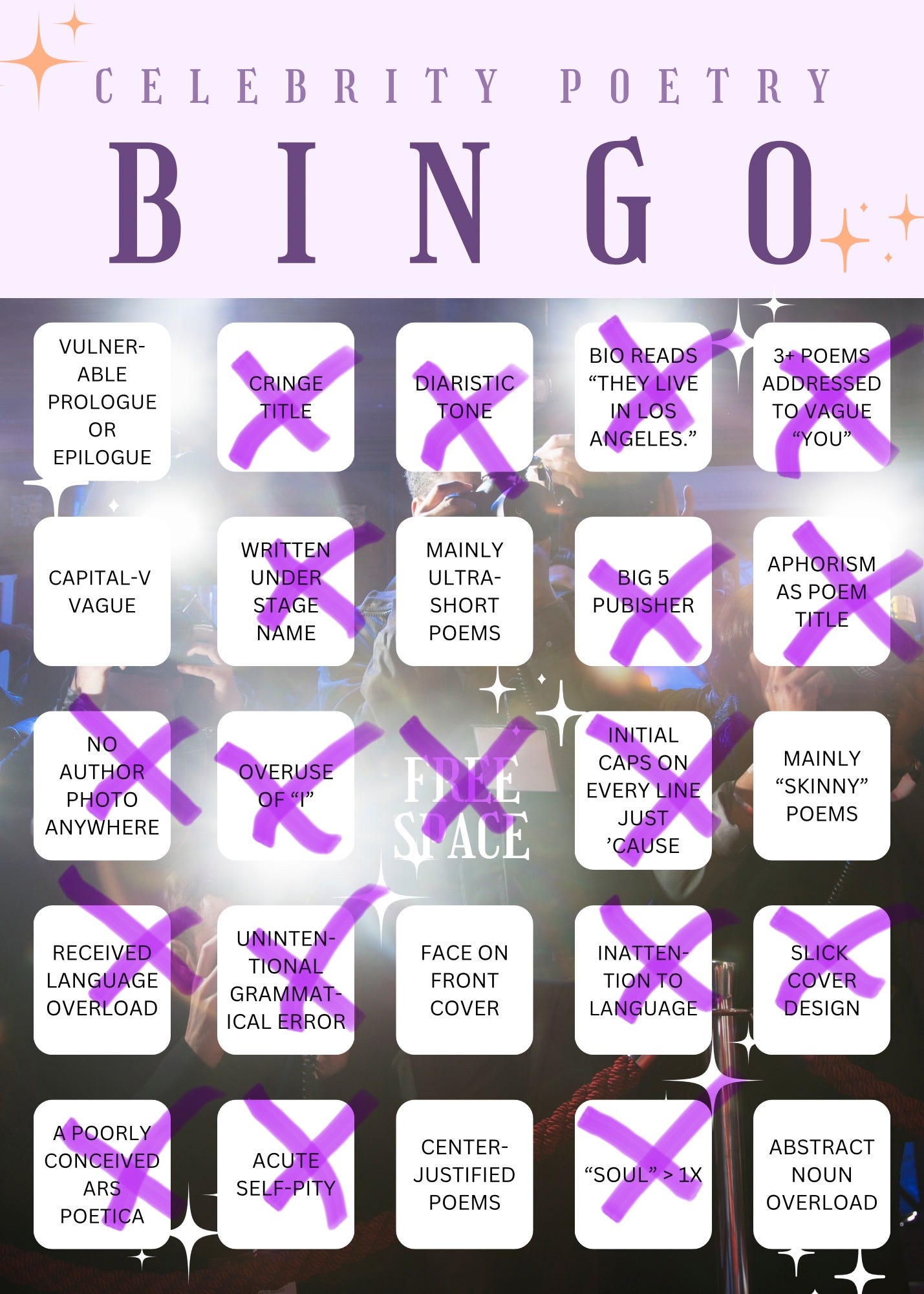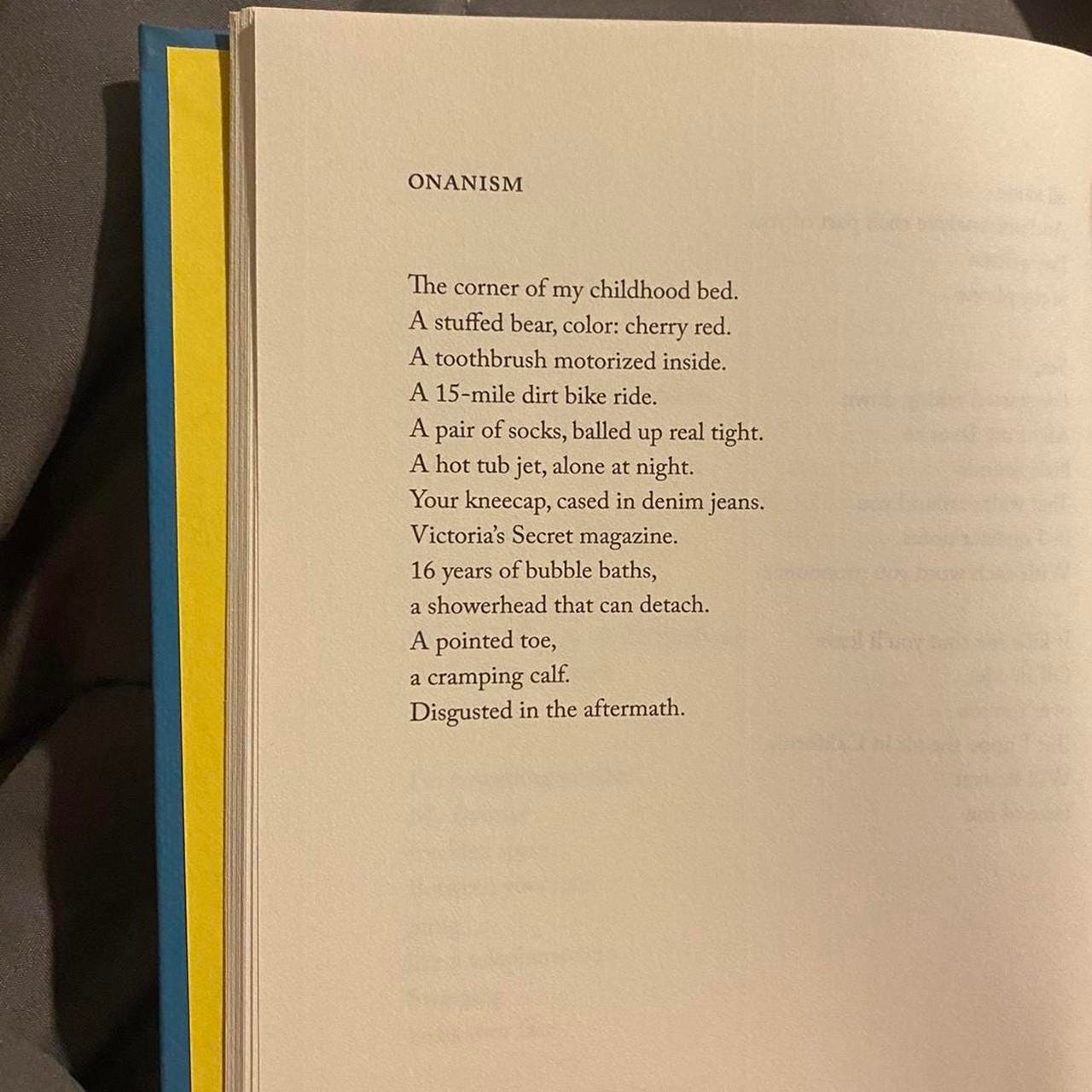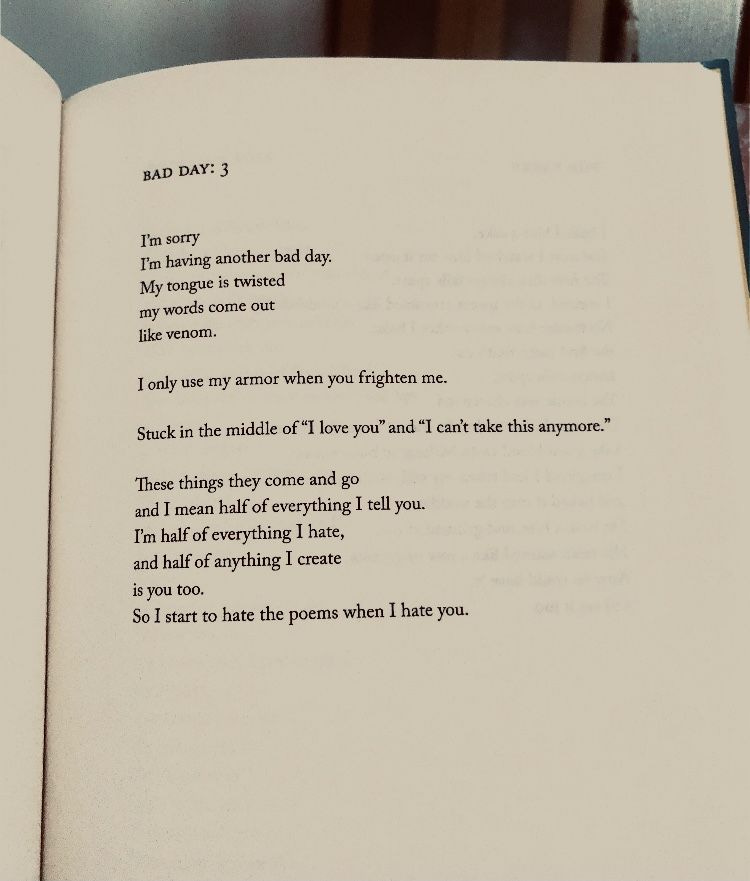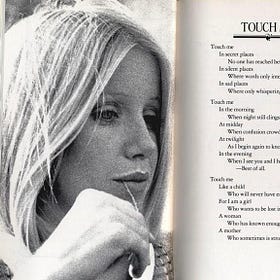All That Glitters: Halsey's Poetry Fills a Celebrity Poetry Bingo Card
Part spoken-word shadow, part run-of-the-mill diaristic drivel, I Would Leave Me If I Could showcases the singer's paradoxical identities, but it could have done so much more.
You’re reading All That Glitters: (Re)appraisals of musicians, actors, and other culture-makers who have published poetry. All That Glitters is a semi-regular feature of PopPoetry, a poetry and pop culture Substack written by Caitlin Cowan. You can learn more about it here or check out the archive to see other TV shows, movies, and films whose intersections with poetry I’ve covered. Like what you read? Subscribe so you won’t miss a post!
Singer-songwriter, three-time Grammy nominee, makeup mogul, and activist Halsey’s 2020 book of poetry, I Would Leave Me If I Could, has been on my radar since it was published. There’s just one problem: it’s somewhere between a double bingo and a full house.
What am I talking about? Well, if Celebrity Poetry Book Bingo existed, it might look something like this:
As an unlikely connoisseur of celebrity books of poetry, I’ve developed a robust understanding of the moves that such collections tend to make, which is tricky; in the hands of experienced poets, the very same moves might feel utterly inspired. But certain aesthetic and stylistic choices—if such books are well-crafted enough to have either—are par for the glittery yet nutritionally void course.
I Would Leave Me If I Could has its moments, but it’s mostly a victim of its author’s fame.
Bingo
The Celebrity Poetry Bingo card was both simple and difficult to make. It was simple to select the items to fill the squares: I’ve written a dozen of these celebrity poetry profiles and have several more in the pipeline. I’ve written and studied poetry seriously since I was 12, and I’ve been publishing PopPoetry weekly for three years now. In other words, I’m a subject-matter expert on this very weird subject.
It’s simple enough to generalize about the kinds of trends I’ve seen in celebrity books of poetry. But the card was also difficult to make for two reasons:
It feels kind of mean.
Celebrities are people, too. Have they given up their right to anonymity and opened themselves to public criticism by virtue of their fame? Yes. But no one likes a negative review. And the personal nature of poetry (or at least of poetry like this) can make it seem as if it’s the person being criticized and not the poems.
Rules are meant to be broken… sort of.
Some of the items on this list are legitimate craft techniques or unproblematic on their own. And for every “rule” that exists within a given art form there exist numerous wonderful examples of those who break that rule to grand effect. But when so many of these choices are made at the same time, the effect is a book of poetry that is not as artful or impactful.
Halsey’s Poetry
I was primed to like Halsey’s poetry because I had heard the poem she read at the 2018 Women’s March speech. “A Story Like Mine” moved many, and described a lifetime of sexual assault and predation by men. The highly narrative poem was long and raw and rousing. But what made her words resonate at the March was her commitment to language, detail, sound, and a shared experience.
He’s got a case of Matchbox cars and he says he’ll teach me to play the guitar if I just keep quiet.
The commitment to motion and rhythm and assonance and all the things that make the best spoken-word poetry shine are on display here. But that Halsey didn’t write this book, or she was asleep during the writing of many of these poems. In I Would Leave Me If I Could, poetry functions as a kind of stylized journal entry.
Here’s what this book’s bingo card might look like:
Many of her poems are clever and well-written enough but lack any kind of torque, analysis, or concussion, preferring instead to dwell only in their own confession:
Others are just not engaging in any way, anodyne and diaristic, the kind of poems that make you want to turn the page not to relish another piece but to get closer to the end of the book.
With a mega-platform and a huge readership, the poems and the book could have done more, gone farther into the themes they touch on.
Halsey has said in the past that she is a kind of “in-between” role model. She has been homeless but now owns a $10 million home in Calabasas. She is biracial but passes for white, queer and yet frequently styled as a traditional feminine pop icon, has struggled with mental illness and been harmed by sexual assault. She’s now a mother. She still does her own makeup. She’s an interesting character, to be sure.
She wants to be known as the queen of liminiality, which is a righteously cool goal, but the poems in her collection are sadly far too conventional in their approach to earn her such a moniker. Without the richness of actual music behind them, Halsey’s words reveal their flatness in this collection. And it’s a bummer.
Why Does Any of This Matter?
In a 2020 interview with Ilana Kaplan for Vogue, Halsey had this to say:
Why release a book of poetry now?
Honestly, there’s two reasons. The first is because I had it. The second reason is because I reached a point in my career where I don’t want there to be any sort of debate on whether or not I write. A lot of people just generally assume I don’t write my own music, even though I’ve said till I’m blue in the face that I do. Also, there’s stuff you can say in a book that you can’t say in an album. When I sing, the writing is tainted by whatever I look like at that time, whoever people think I’m dating at that time, and whatever they’ve read about me in the press most recently. They build a composite of who they think I am, and then that’s how they interpret the work. But a book is faceless.
Faceless. It’s a fascinating idea. But is it true? That books are faceless? Though Halsey hasn’t put her face on the book itself (a classic celeb poetry book move), she assumes that people don’t know who she is. Even if you don’t know her as a celebrity, the mononym might be a clue that she isn’t your average literary type.
Maybe what she’s getting at is who she’s allowed to be in a book: “there’s stuff you can say in a book that you can’t say in an album,” she says. However true or untrue that is, Halsey feels she can transcend herself through poetry. It’s actually kind of refreshing, and transcendence is something we like to talk about in poetry circles very much.
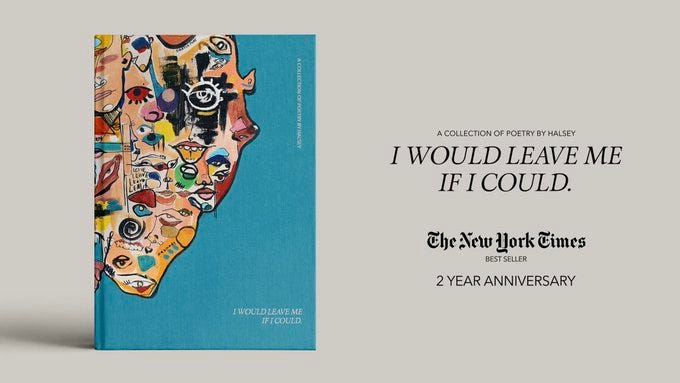
But if this book were written by Ashley Frangipane, Halsey’s given name, or under an untraceable pen name, would we like it more? I’m afraid we’d like it even less, and what’s more, it would never have been published, at least not by Simon & Schuster.
Often poetry is a kind of proof for people, proof that they can write, that they exist or existed, that they are real people. It should not be so but ultimately always, at least a little bit, is. And when the writers seeking this kind of validation have already been validated by millions upon millions of adoring fans in aidifferent or event closely related arena, that naked desire is hard to grapple with.
Are celebrity books of poetry taking shelf space from dedicated poets who devote their entire life to their craft? Honestly? Maybe. But as I keep repeating, poetry is for everyone—and that has to extend to the rich and famous.
But like any other art form, there’s poetry for the masses and poetry for poetry connoiseurs. Halsey’s book is the former type. Since it can’t say much to us as readers, let’s hope that by writing it she found what she was looking for within herself.
Have you read this book? What did you make of it? Want to argue with me about Celebrity Poetry Bingo? Meet me in the comments!
Related
All That Glitters: Megan Fox's Book of Poems Will Make You Wonder Who They're About—and That's the Problem
I desperately wanted Pretty Boys Are Poisonous—Megan Fox’s first book of poetry—to disarm me, to flatten me with an unexpectedly assured voice that could speak from the other side of beauty and celebrity and Hollywood to show me something new. And while Fox does write about what’s behind her glittering facade, what’s there is sadly quotidian in both its subject matter and its language.
All That Glitters: What Do We Want from Suzanne Somers?
Touch me. It’s a phrase loaded with sexual passion, an imperative sentence that asks the hearer to put down language and take action instead. Touch me. Do it. It’s as much a dare as it is a demand. We know exactly what it means, and why we say it, but hearing it aloud or seeing it written down feels inexplicably raw. It’s like a secret said aloud.






